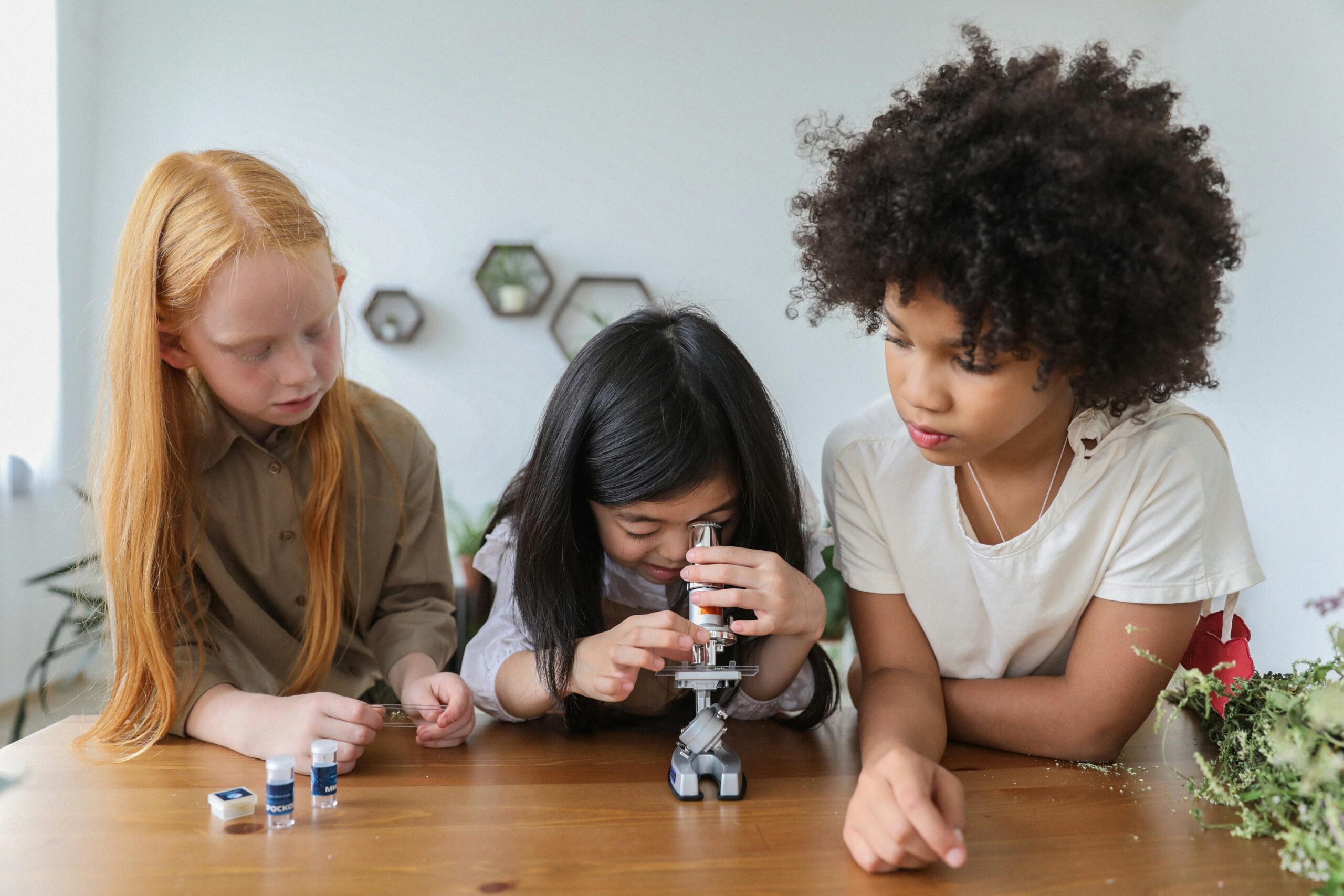Spotlight on Leading Schools for Science Competitions in Ontario
Why Choose a School with Strong Science Programs?
Choosing the right school can be tough. But picking a school known for its science programs can be a game-changer. These schools offer exciting opportunities for your child to explore, learn, and shine in science competitions. Let’s dive into some of the best schools in Ontario for budding scientists.
University of Toronto Schools (UTS)
University of Toronto Schools (UTS) is famous for its strong academic programs. At UTS, students get the chance to join top science competitions like the Canada-Wide Science Fair. The school has excellent labs and teachers who love science. Your child will feel inspired and ready to explore.
UTS also offers mentorship programs where older students help younger ones with their projects. This creates a friendly and supportive environment. UTS is the place to be if your child dreams of winning science competitions!
Northern Secondary School
Northern Secondary School is another gem in Ontario. It has a fantastic science department with dedicated teachers. The school’s science club is always buzzing with activities and experiments. Students here participate in events like the Science Olympics and the Biotechnology Competition.
The school also has partnerships with local universities. This means your child can visit real labs and meet scientists. Northern Secondary School makes science fun and exciting!
St. Robert Catholic High School
St. Robert Catholic High School is well-known for its STEM programs. The school offers courses in robotics, coding, and environmental science. Students get to participate in contests like the Robotics Competition and the Eco-Schools Challenge.
St. Robert’s science fairs are legendary. They encourage creativity and critical thinking. The school also organizes science camps during the summer. These camps are a great way for your child to learn and make new friends.
Why Science Competitions Matter
Science competitions are more than just fun. They teach kids valuable skills like problem-solving and teamwork. When your child participates in these competitions, they learn to think like scientists. They ask questions, test their ideas, and find solutions. These skills are essential for their future careers.
Benefits of Attending a Leading Science School
When your child attends a school known for its science programs, they get many benefits. They have access to great resources like labs and libraries. They get to meet like-minded friends who share their passion for science. Plus, they get to work on exciting projects and compete in national and international competitions.
How to Support Your Child’s Science Journey
As a parent, you play a crucial role in your child’s education. Here are some tips to support their science journey:
- Encourage curiosity: Let your child ask questions and explore their interests.
- Provide resources: Get them books, science kits, and online courses.
- Celebrate achievements: Praise their efforts and celebrate their successes, big or small.
- Stay involved: Attend school events, join parent-teacher meetings, and keep in touch with their teachers.
The Future is Bright for Young Scientists
Choosing a school with strong science programs can set your child on a path to success. Schools like University of Toronto Schools, Northern Secondary School, and St. Robert Catholic High School provide excellent opportunities for young scientists. They offer the right mix of education, support, and fun. Encourage your child to participate in science competitions. It’s a great way to learn, grow, and achieve their dreams.
Remember, your support and encouragement are key to their success. With the right school and your guidance, your child can reach for the stars and make amazing discoveries. So, explore these schools and give your budding scientist the best start in their scientific journey!
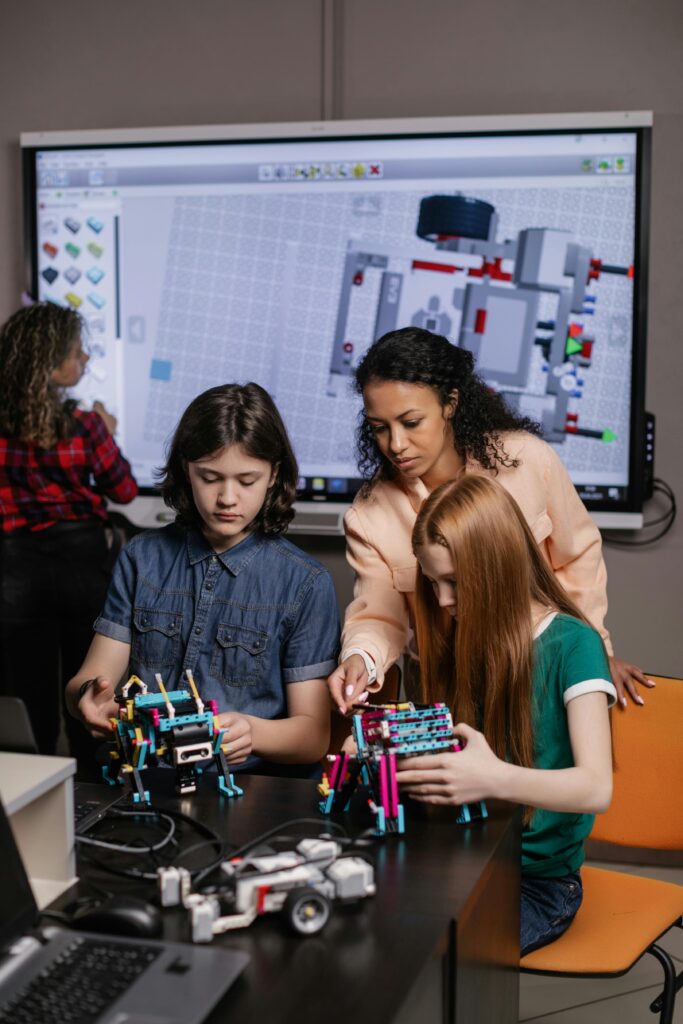
Unique Science Programs Offered for Science Competitions in Ontario
Why Unique Science Programs Matter
Choosing a school with unique science programs can be a game-changer for your child. These programs go beyond the regular curriculum and offer exciting, hands-on learning experiences. They help students develop critical thinking, problem-solving, and teamwork skills. Plus, they make science fun and engaging! Let’s explore some of the unique science programs offered by leading schools in Ontario.
The Ontario Science Centre School
The Ontario Science Centre School offers a unique program where students spend an entire semester at the Science Centre. This program is available to grade 12 students who are passionate about science. They get to work on real-world projects, conduct experiments, and interact with scientists. Imagine your child exploring the mysteries of the universe in a state-of-the-art planetarium or experimenting with cutting-edge technology in a high-tech lab!
The program also includes field trips and special guest lectures. Students get to learn about the latest scientific discoveries and innovations. They also develop important skills like research, communication, and collaboration. This program is perfect for students who dream of a career in science or technology.
SHAD Canada
SHAD Canada is another amazing program for high school students. It’s a month-long summer program that focuses on science, technology, engineering, and math (STEM). Students from all over Canada come together to live on a university campus and work on innovative projects. They tackle real-world problems and come up with creative solutions. Your child will get to design and build prototypes, conduct experiments, and present their findings.
SHAD Canada also offers mentorship from industry professionals and university professors. This gives students a chance to learn from experts and get a taste of university life. The program fosters a sense of community and encourages lifelong friendships. It’s an unforgettable experience that can shape your child’s future.
MaRS Discovery District Programs
The MaRS Discovery District in Toronto offers several programs for young innovators. One of their popular programs is the MaRS Future Leaders. This program is designed for high school students who are interested in entrepreneurship and innovation. Students get to work on projects related to science, technology, and social impact. They learn about business planning, marketing, and pitching ideas.
MaRS also offers workshops and hackathons where students can collaborate on solving real-world challenges. They get to work with mentors and industry experts, gaining valuable insights and skills. The program encourages creativity, critical thinking, and leadership. It’s a fantastic opportunity for your child to explore their interests and develop new talents.
University of Toronto’s Da Vinci Engineering Enrichment Program (DEEP)
The Da Vinci Engineering Enrichment Program (DEEP) at the University of Toronto is another fantastic option. This program offers summer courses for high school students who are passionate about engineering and science. Students get to choose from a variety of courses, such as robotics, biotechnology, and computer programming.
In the DEEP program, students work on hands-on projects and experiments. They learn from university professors and graduate students, gaining a deeper understanding of complex scientific concepts. The program also includes lab tours, guest lectures, and field trips. It’s an excellent way for your child to explore different fields of engineering and science.
How to Encourage Your Child’s Participation
As a parent, you play a vital role in encouraging your child’s participation in these programs. Here are some tips to help you get started:
- Explore options together: Research different programs and discuss them with your child. Find out what interests them the most.
- Attend open houses: Visit schools and programs during open houses or information sessions. This will give you and your child a better understanding of what’s offered.
- Apply early: Many of these programs have limited spots and competitive admissions. Make sure to apply early to increase your chances.
- Support their interests: Encourage your child’s curiosity and passion for science. Provide them with resources like books, science kits, and online courses.
- Celebrate their achievements: Recognize and celebrate your child’s accomplishments, whether big or small. This will boost their confidence and motivation.
The Path to Scientific Excellence
Ontario offers a wide range of unique science programs that can inspire and challenge your child. Programs like the Ontario Science Centre School, SHAD Canada, MaRS Future Leaders, and the DEEP program provide invaluable experiences. They help students develop essential skills and foster a love for science.
By encouraging your child to participate in these programs, you’re giving them the opportunity to explore their interests and reach their full potential. These experiences can shape their future and open doors to exciting career opportunities. So, take the time to explore these programs and support your child’s journey to scientific excellence. The future is bright for young scientists in Ontario!
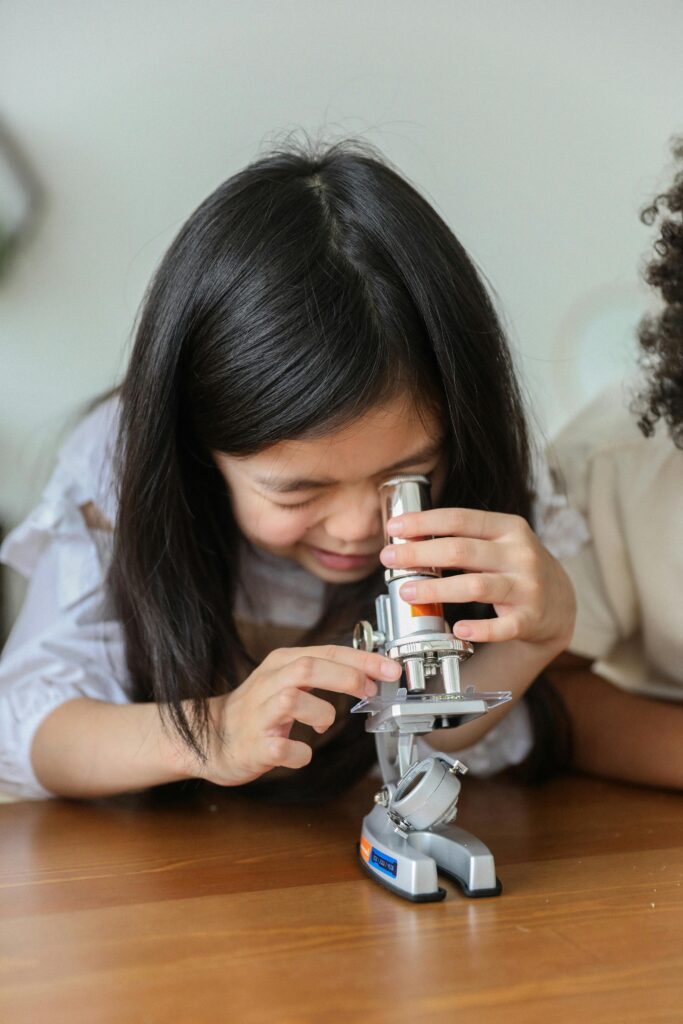
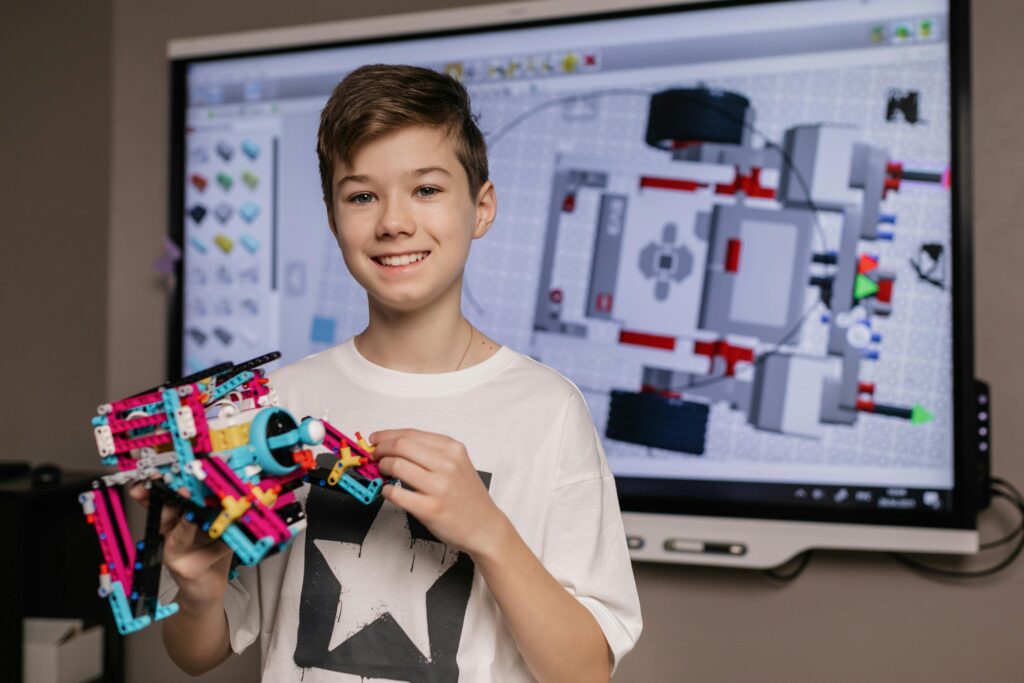
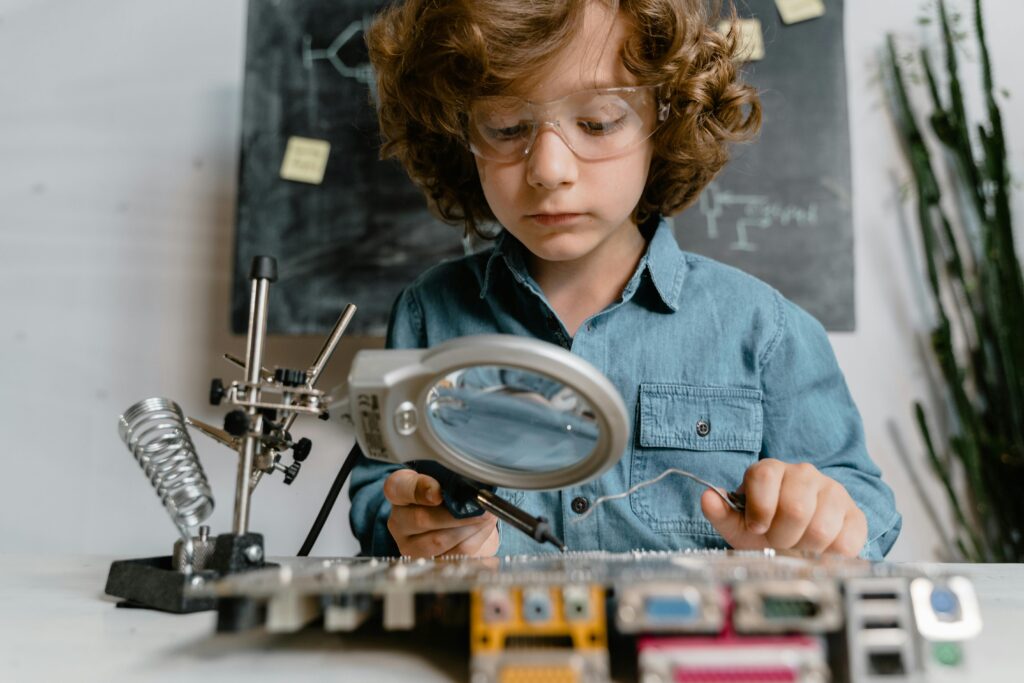
Success Stories and Achievements in Science Competitions in Ontario
Celebrating Young Scientists’ Triumphs
Hearing about success stories can be incredibly inspiring, especially when it comes to young scientists. Ontario is home to many talented students who have excelled in various science competitions. These achievements not only highlight their hard work but also showcase the incredible opportunities available in our schools. Let’s dive into some of these amazing success stories and celebrate the young minds shaping our future.
From Classroom to International Fame
One inspiring story is of Sarah, a grade 11 student from Toronto. Sarah’s journey began with her school’s science fair, where she presented a project on renewable energy. Her innovative idea to use algae for biofuel caught the judges’ attention. She won first place and advanced to the regional science fair. But Sarah didn’t stop there. She worked tirelessly to improve her project and won at the national level. Her dedication earned her a spot at the International Science and Engineering Fair (ISEF). Competing against the best young scientists from around the world, Sarah won a prestigious award. Her success story is a testament to the power of perseverance and creativity.
Making Waves in Robotics
Meet Jason, a high school student from Ottawa, who has a passion for robotics. Jason joined his school’s robotics club and quickly became a key team member. The team participated in the FIRST Robotics Competition, a highly competitive event. They designed and built a robot to complete specific tasks, working long hours to perfect it. Their hard work paid off when they won the regional championship. The team then advanced to the world championship, where they competed against top teams globally. Jason’s experience in robotics taught him valuable skills like teamwork, problem-solving, and engineering. His success story shows how dedication and passion can lead to incredible achievements.
Innovating for a Better Future
Emily, a student from Mississauga, is another shining star. She developed a device to help people with hearing impairments. Her project started as a small idea in her school’s innovation club. With support from her teachers and mentors, Emily turned her idea into a functional prototype. She entered her project into the Canada-Wide Science Fair and won the gold medal. Emily’s invention received media attention, and she was invited to present her work at various conferences. Her success story highlights the importance of supporting young innovators and providing them with opportunities to showcase their talents.
Why Success Stories Matter
These success stories are more than just inspiring tales. They show the real impact of science competitions on students’ lives. Participating in these competitions helps students develop critical thinking, problem-solving, and communication skills. It also boosts their confidence and encourages them to pursue careers in science, technology, engineering, and math (STEM). When you hear about these achievements, you see the potential within your own child to achieve greatness.
How Schools Support Success
Ontario schools play a crucial role in nurturing young talent. They provide resources, mentorship, and encouragement to help students succeed. Many schools have dedicated science clubs, advanced labs, and partnerships with universities and industry experts. These resources give students the tools they need to excel in science competitions. Schools also organize events like science fairs, hackathons, and robotics competitions, creating a platform for students to showcase their work. By fostering a supportive environment, schools help students reach their full potential.
Encouraging Your Child’s Success
As a parent, you can play a significant role in your child’s success. Here are some tips to help you encourage their participation in science competitions:
- Show interest: Ask your child about their science projects and competitions. Show genuine interest in their work and progress.
- Provide resources: Equip your child with the necessary tools, such as books, kits, and access to online resources.
- Connect with mentors: Help your child find mentors or join clubs where they can receive guidance and support.
- Celebrate achievements: Recognize and celebrate your child’s successes, no matter how big or small. This boosts their confidence and motivation.
- Encourage curiosity: Foster a love for learning by encouraging your child to ask questions, explore new ideas, and experiment.
The Future is Bright
Ontario’s young scientists have shown that with passion, dedication, and support, they can achieve remarkable things. Their success stories serve as an inspiration to other students and a reminder of the importance of nurturing young talent. By encouraging your child to participate in science competitions, you’re giving them the opportunity to develop valuable skills, build confidence, and pursue their dreams.
Remember, every great scientist started as a curious child with a love for discovery. With the right support and opportunities, your child can also become a success story. So, celebrate their achievements, support their journey, and watch them shine. The future is bright for Ontario’s young scientists, and your child could be the next success story we celebrate!

How to Apply and Join Science Competitions
Getting Started: Find the Right Competition
If your child loves science, joining a science competition can be an exciting adventure. The first step is finding the right competition that matches their interests and age group. In Ontario, there are plenty of options to explore. From local science fairs to national and international competitions, there’s something for everyone. Start by checking your child’s school for any upcoming events. Schools often host science fairs and can provide valuable information on how to participate.
Research and Choose the Best Fit
Once you know the options, research each competition. Look at the competition’s focus, such as environmental science, robotics, or general science. Some competitions are team-based, while others are individual. Involve your child in the decision-making process. This will help them feel more invested and excited about the competition. The Canada-Wide Science Fair and the FIRST Robotics Competition are great places to start. These competitions offer a range of categories and have a history of inspiring young minds.
Understanding the Requirements
Each competition has its own set of rules and requirements. It’s crucial to read these carefully. Some competitions require a research paper, while others may need a presentation or a physical project. Make sure you and your child understand what’s expected. This will help in planning and preparing for the competition. Check deadlines for applications and submissions. Mark these dates on your calendar to avoid any last-minute rush.
Preparing the Application
Now that you’ve chosen a competition, it’s time to prepare the application. Start by gathering all the necessary documents. This might include a project proposal, research plans, or previous work samples. Encourage your child to take the lead in this process. It’s a great learning experience and helps them take ownership of their project. Ensure that all forms are filled out accurately and completely. Double-check for any additional requirements, such as consent forms or letters of recommendation.
Seeking Help and Guidance
Don’t hesitate to seek help and guidance during the application process. Teachers, mentors, and other parents can provide valuable advice and support. Many schools have science clubs or after-school programs where students can work on their projects together. These clubs often have experienced advisors who can help with technical questions and project planning. Online forums and community groups are also great resources for tips and advice.
Crafting a Strong Project Proposal
A strong project proposal can make a big difference. This is your child’s chance to showcase their ideas and enthusiasm. Help them outline their project clearly, explaining the problem they’re addressing and their proposed solution. Encourage them to include any preliminary research or experiments they’ve conducted. Highlight the uniqueness and potential impact of their project. A well-crafted proposal not only impresses the judges but also helps your child stay focused and organized.
Practicing Presentation Skills
Many science competitions require participants to present their projects to judges. Good presentation skills can set your child apart. Encourage them to practice explaining their project clearly and confidently. Use simple language and make sure they can answer common questions about their work. Practicing with family and friends can be very helpful. Constructive feedback will help them improve and feel more comfortable on the big day.
Submitting the Application
When the application is ready, it’s time to submit it. Make sure to submit all required materials before the deadline. Keep copies of everything for your records. If the submission is online, ensure you receive a confirmation email. If it’s by mail, use a reliable service and keep the tracking number. Double-check that all parts of the application are complete and that no important details are missing.
Getting Ready for the Competition Day
Once the application is submitted, it’s time to prepare for the competition day. Help your child stay organized and focused. Make a checklist of everything they need to bring, such as their project materials, presentation notes, and any necessary equipment. Encourage them to get plenty of rest the night before and to stay hydrated and relaxed. Remind them that the competition is a learning experience, and having fun is just as important as winning.
Celebrating Participation
Participating in a science competition is a significant achievement in itself. No matter the outcome, celebrate your child’s hard work and dedication. Praise their effort and commitment to their project. Encourage them to reflect on what they’ve learned and how they can improve for future competitions. Participation builds confidence and resilience, valuable traits that will benefit them in all areas of life.
The Journey of Discovery
Applying and joining science competitions can be a rewarding journey for your child. It offers a chance to explore their interests, develop new skills, and meet like-minded peers. By guiding and supporting them through the process, you’re helping them build a foundation for future success. Remember, the goal is to learn, grow, and have fun along the way. So, dive in, explore the opportunities, and watch your child shine in the world of science competitions!
Stay tuned to the Science Competitions page for more information about Science competitions and fairs in Ontario!
Also interested in learning about Math Olympiads? check out Math Olympiad page for more information!



